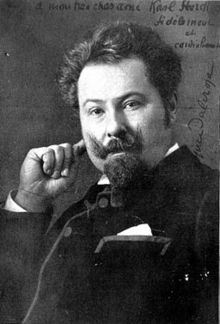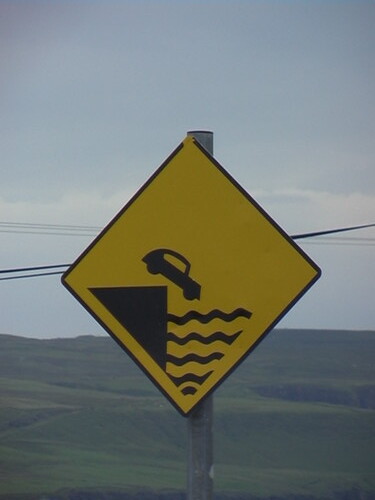The Myth of Reflection?
Think…
Do you believe that you are capable of objectivity?
Do you believe that you can answer that question objectively?
Reflection is something that is expected of the educator. Expected to the point that it may be impossible. For the most part, reflection is discussed more than it is taught. Discussed far more than it is genuinely practiced. I have to confess, I hear an awful lot of talk about being reflective but I hear very few people talking about how to reflect. And I hear even less people challenging one another on their reflection. Not to encourage impolite behavior or being impolitic, but it is necessary that we seek a common understanding of practices that will save our professional lives.
What is it? Is it a unified concept? That is to say–does it mean the same to everyone? Have we reached consensus?
If we are to develop as professionals through the use of reflection in a meaningful way,
then reflection must be a singular sensation.

Think about it. If green is not green to you, but it is green to me, is that a problem? Really? You see, if you are color blind, green is still not a problem. We tend to think narrowly about that, do we not?
We think–how will you know whether to stop or go at an intersection?
But then we realize that knowing the color doesn’t affect whether we know the light on the bottom from the light on the top.
Color blindness does not make one less capable despite what fashion decisions may be made.
If we are going to engage in reflection, we have to take purposeful steps to take myth out of the process. Here are a few tips to get you started.
1. Plan ahead based on the type of activity.
You need a point of departure. Write a list of hypotheses, questions, or even opinions you have about your own approaches to teaching. Select which ones belong in each context. This will become your Inquiry Checklist. If you are introducing new material you may have different items than a session based on exploration or review for a larger project or assessment. Do you think that you are great on your feet? A whiz on the fly? What are some of the things that would support that belief? Some teachers think that they are very positive in class–do you? Are you? Maybe you’d like to know how many positive or negative statements you make in a session. Are you a great facilitator? What do you do that supports that belief?
2. Keep your scope narrow and rare.
Answer just a few questions per session. You will find that you could be overwhelmed with your actual performance. I also recommend that you do this full process, at most, four times each school year. Aside from the amount of time it will take to do this responsibly, altruism is at a premium.
3. Bring a friend.
There is no way to do this while you are teaching. However you choose to assess, recalibrate, and redirect activities in class is simply your teaching practice. It is your professional activity–do not let this become your only indicator of your success. Act natural and do your thing. Set up a camera in a hidden place with a good view of the room. Do not tell your students about it. Want to add to the excitement? Have a colleague do a walkthrough with one, two, or all of the items from your Inquiry Checklist. Invite them to stay for a set period of time or the whole period but decide that ahead of time.
4. Document before the big reveal.
As soon as you are able, debrief alone. Respond to your prompts as honestly as you can. Do this before you view the video. Do this before you schedule time to listen to your colleague. This is an important step in the process because it will allow your reflective process to calibrate–helping you to develop some inter-rater reliability with your subjective mind.
5. Prepare to be non-plussed.
When you have your own reflection completed, sit down with your colleague and listen. Let them tell you the story of what they saw in your classroom. Allow them to tell you what they think you were trying to accomplish and their impression of good, bad, and neutral activities by you and your students. Did you add to learning or confuse? Did you jump in or change gears too soon? Was it paced well? It is important that you create the type of atmosphere that allows your colleague to be honest. Some of their input may be challenging. Do not allow yourself to explain or justify. For the colleague, this is the second time through but for you it is the first. Let it sink in and settle.
6. Make decisions.
When this whole process has run its course it is time to make decisions. My advice is to limit yourself to one or two changes that you think are most important to the classroom. Some suggestions that I have made or heard from colleagues:
Let information breathe–do not jump in too soon;
Give students more time to think before you speak;
Model risk taking and mistake making;
Sit on the floor–change levels, not just placement in the room
The greatest myth of reflection is that is can happen alone.


 process that we require of students. Consider whether knowledge begins close to the heart before it is in the hands; in the mouth before it is on the pen; on the paper before it is in the computer. With each added distance, there is an added level of abstraction. When tools are involved and the information moves beyond the body–using a pencil, a drumstick, and beyond to a computer keyboard that places words onto a screen–the learned concepts take significant leaps into abstraction. Are your students prepared to make that leap and are you prepared to intervene if they are not? If you prefer, you may think along the lines of another Swiss theorist, Jean Piaget. According to Piaget, the final stage of development is most notably marked by the ability to think abstractly. While Piaget’s stages are developmental across years, it may be a worthwhile consideration to parallel these stages through the teaching and learning within your content.
process that we require of students. Consider whether knowledge begins close to the heart before it is in the hands; in the mouth before it is on the pen; on the paper before it is in the computer. With each added distance, there is an added level of abstraction. When tools are involved and the information moves beyond the body–using a pencil, a drumstick, and beyond to a computer keyboard that places words onto a screen–the learned concepts take significant leaps into abstraction. Are your students prepared to make that leap and are you prepared to intervene if they are not? If you prefer, you may think along the lines of another Swiss theorist, Jean Piaget. According to Piaget, the final stage of development is most notably marked by the ability to think abstractly. While Piaget’s stages are developmental across years, it may be a worthwhile consideration to parallel these stages through the teaching and learning within your content.